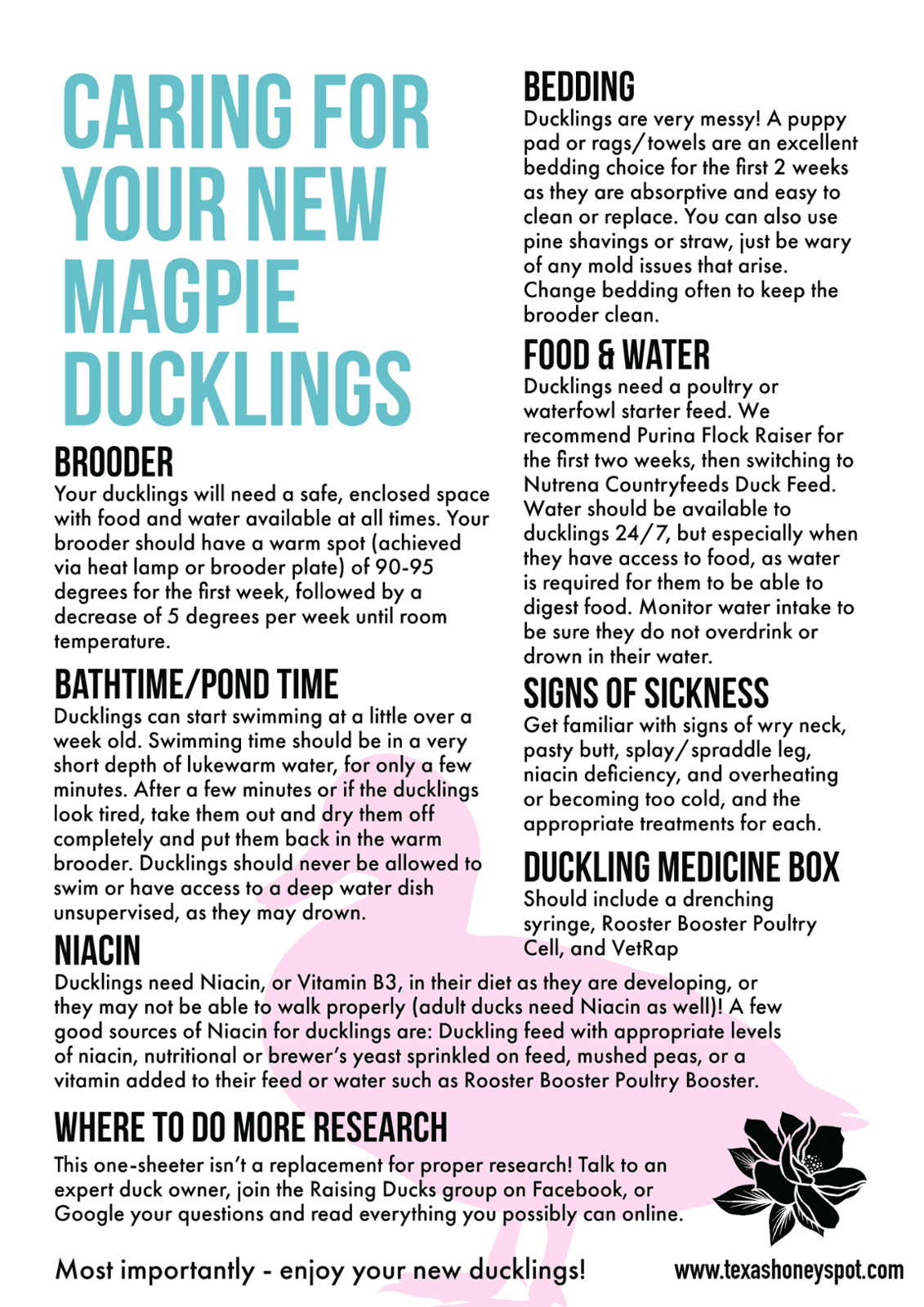This post is for the buyers of my beautiful Magpie ducklings, or for anyone else who finds themselves caring for these sweet little birds! Magpies are currently endangered and listed as "Threatened" by the Livestock Conservancy, so it's important to make sure they reach maturity. Lots of new duck owners are swept away by the cuteness of ducklings that they find themselves without the proper knowledge or research to care for such needy little beings, so I'm writing this post to help educate you on getting your ducklings through the brooder phase, which seems to be the hardest part of a duckling's life.
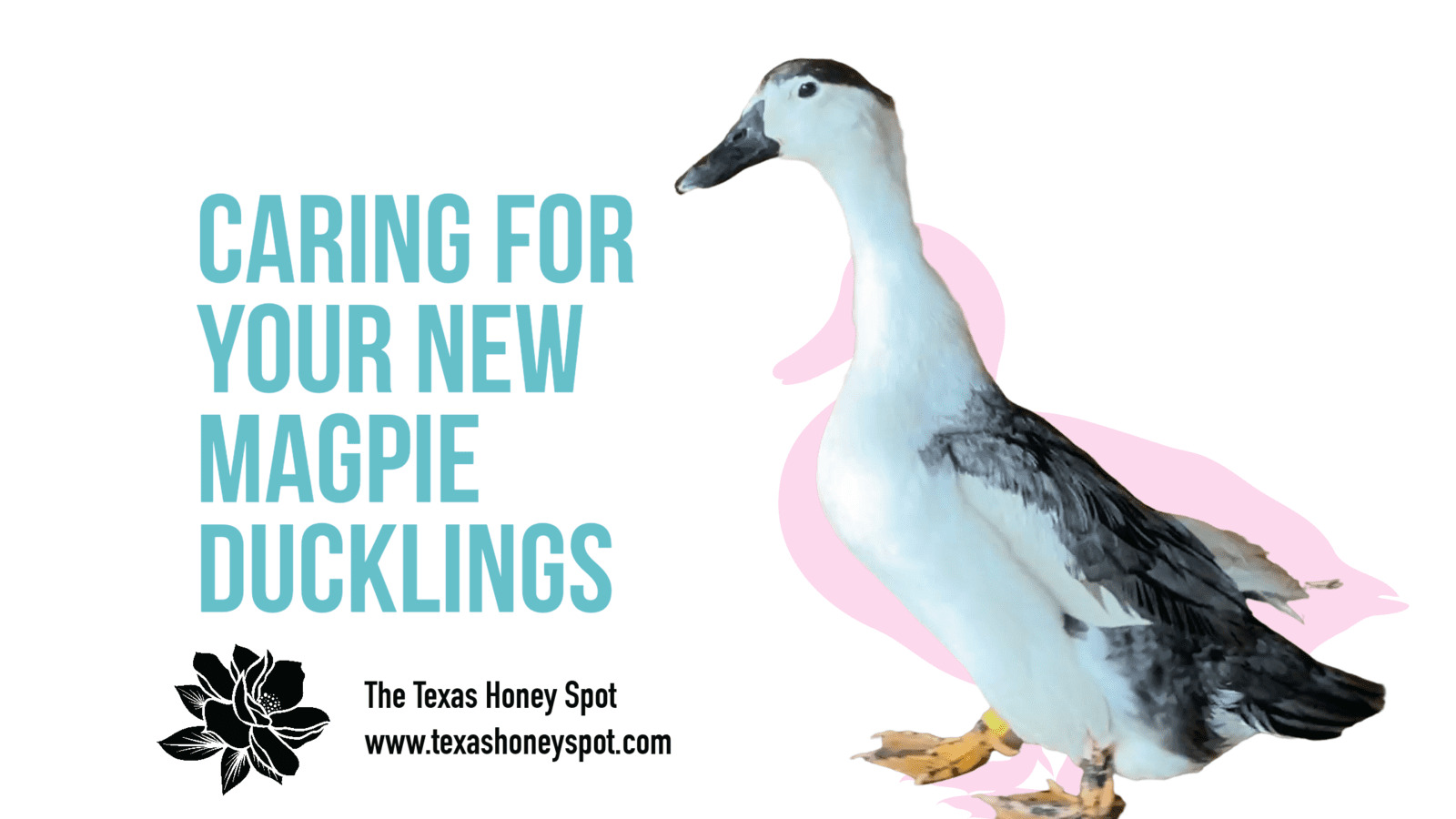
How To Set Up Your Brooder
Ducklings are small and fragile for the first two weeks of life. Before bringing your new ducklings home, have a brooder already set up for them. Your brooder will need several things:
- Food & Water
- Appropriate Bedding
- Heat
- Security
Heat is extremely important for ducklings. You will need to provide them a warm spot of approximately 95 degrees for the first week of life. Every week, you can reduce the temperature of the warm spot by 5 degrees until you reach room temperature at about 5 or 6 weeks. Heat can be provided in many ways, but two of the most popular are a brooder plate or a heat lamp.
Security of your brooder depends on your personal situation. Using a brooder that has a closeable lid (while still allowing air circulation) is the best way to keep ducklings in and predators out. I don't recommend letting kids or other pets unsupervised near your ducklings. You should also your ducklings' exposure to any adult poultry or waterfowl that you may already have. Keep your brooder inside for the first few weeks, if possible, to keep your ducklings safe from wild predators, such as coyotes, opossums, or skunks.
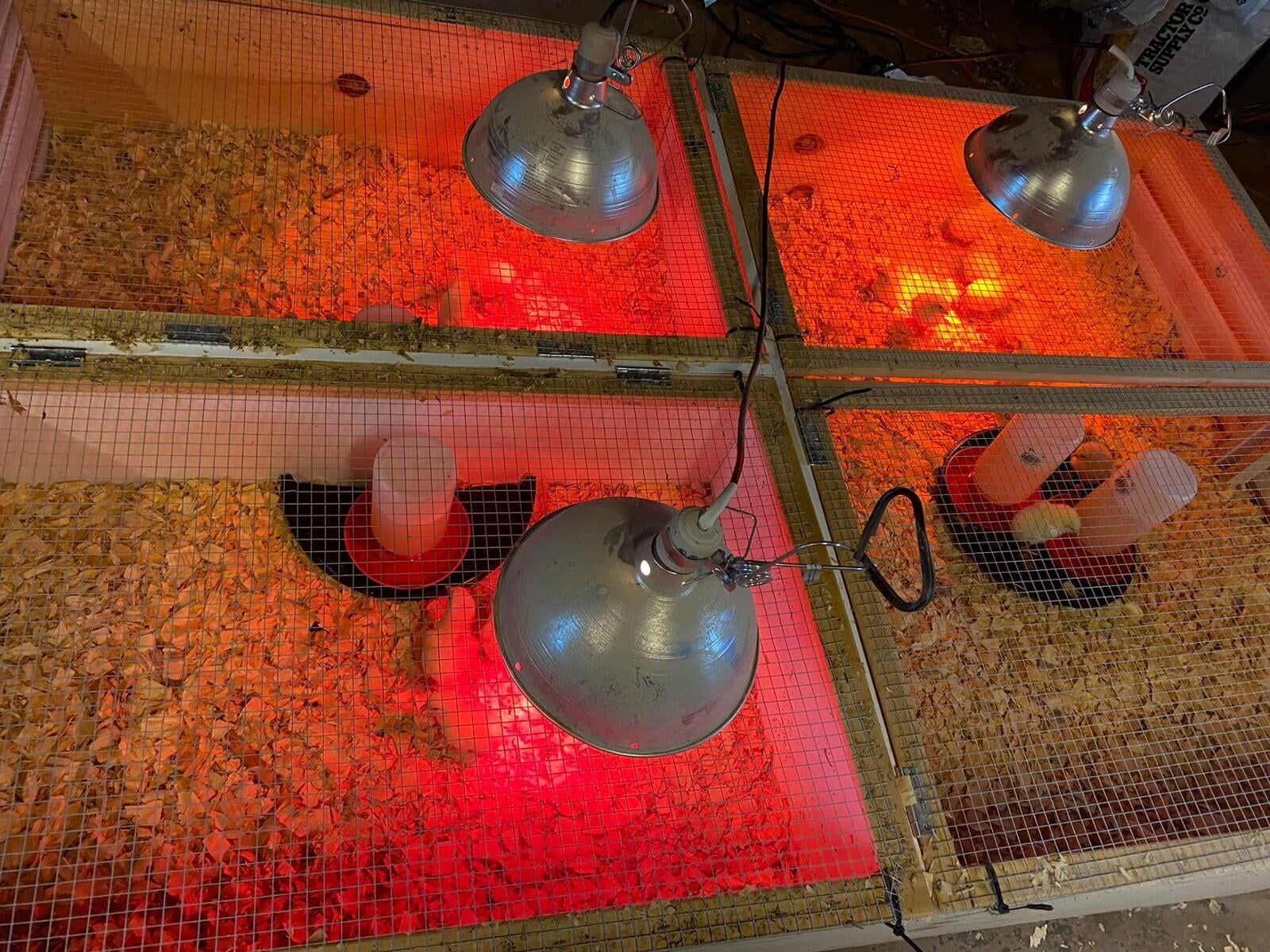
Navigating Food and Water
We raise our ducklings on Purina Flock Raiser as their main source of food for the first two weeks before switching them to Nutrena duck feed. It is important to start your ducklings on a feed that has the appropriate levels of protein (around 19%) and that has the required vitamins and nutrients, such as niacin. Both feeds mentioned above, as well as the ones shown below, are relatively easy to find locally, and cost-effective.
Access to water 24/7 is required for ducklings to thrive. Ducklings not only require water to digest their food, but if they go without water for too long then they will become dehydrated. The thing that kills ducklings the most is not the dehydration itself, but that the ducklings gorge themselves on water to the point where it can cause toxicity, rupture of internal organs, or seizures.

What Kind of Bedding To Use
Ducklings are VERY messy! Consider it practice for when they are adults, and capable of making even more of a mess! Bedding is important in the brooder, as it will help you keep the area tidy and free of infection-causing bacteria. A puppy pad or rags are an excellent bedding choice for the first two weeks as they are absorptive and easy to clean or replace. You can use pine shavings or straw, just be wary of any mold issues that may come from your duckling's constant spilling/splashing in the water. When your ducklings are a little older, between 2-3 weeks, begin switching to the type of bedding that they will have in their adult pen/coop. Lastly, it is very important to change the bedding in the brooder often in order to keep it clean.
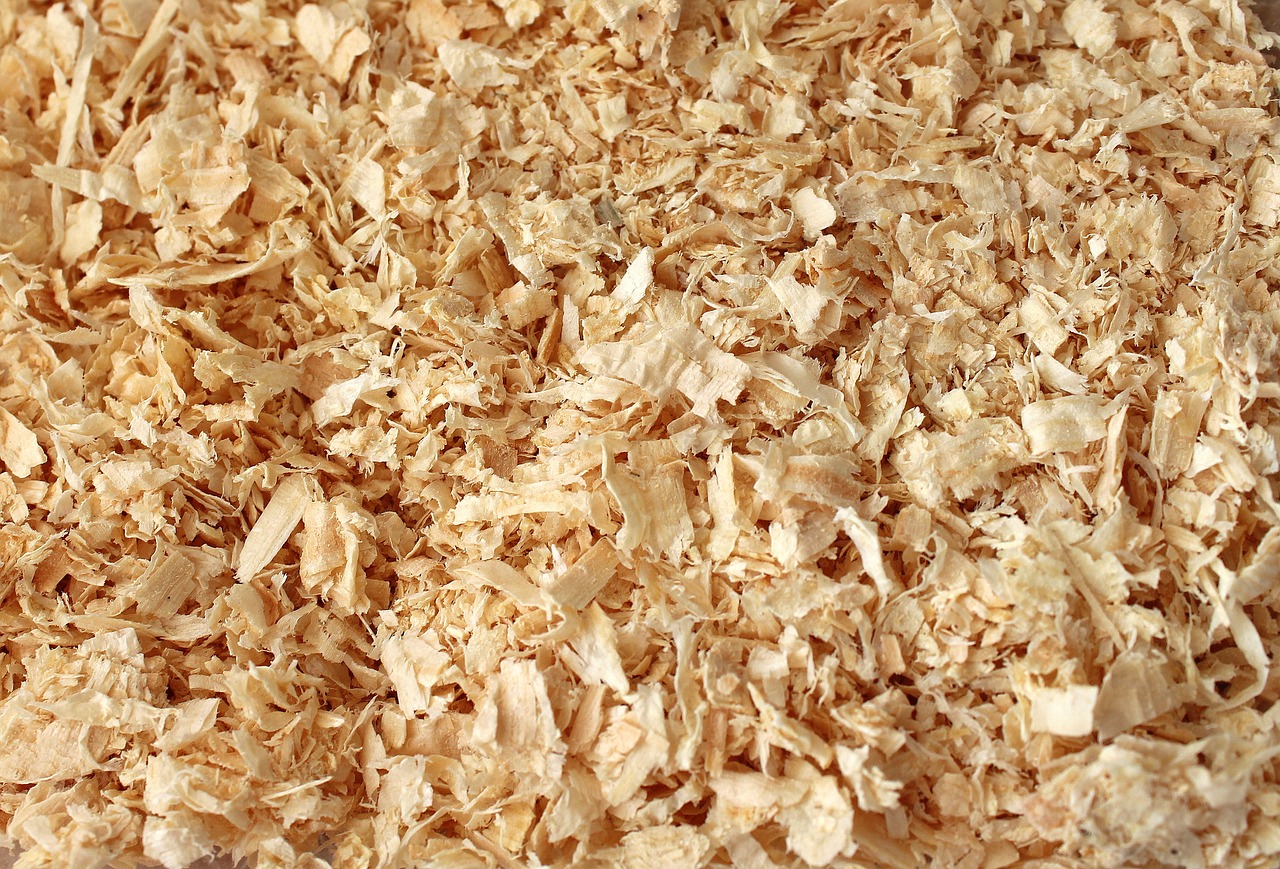
When To Let Ducklings Have Bath Time
Speaking as a duck owner myself, there's no greater joy than seeing your ducks splash and dive in their pond Luckily, you can start this as soon as one week of age, with several precautions.
A duckling's first several swims should take place in a shallow containerwith only 2-3 inches of lukewarm water filled in it. You should be very careful not to make the water too hot (burning/cooking your ducklings) or too cold (freezing your ducklings). Allow them to swim for a few minutes. If at any point they look tired or are struggling to swim, take them out of the water, dry them completely with a towel, let them warm up to your body heat, and put them back in their warm brooder.
Several people think it is best to wait until ducklings are four weeks old to introduce them to swimming. We are totally on board with this and really, it's best for their safety if you decide to wait. They will learn how to swim even if you start later on. No matter when you start, make sure to never allow your ducklings to swim or have access to a deep water dish unsupervised, as they can easily drown without help.
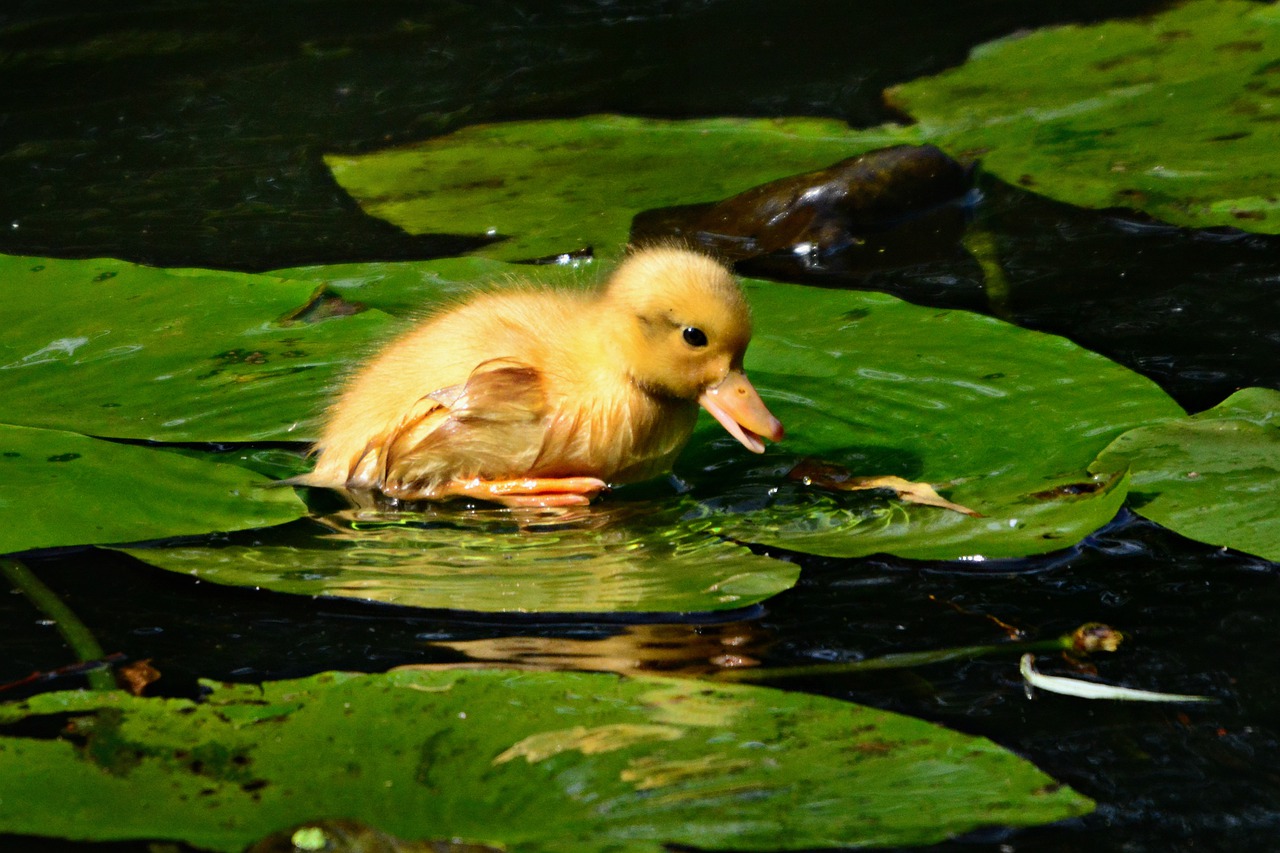
Signs of Sickness And My Recommended Duckling Medicine Box
I don't consider myself an expert on duckling illness, so I'll point you to the experts instead. Read the below sources and get familiar with signs of the sicknesses you could encounter with ducklings, and how to treat them.
Splay/Spraddle Leg or Slipped Tendon - PoultryPedia
Niacin Deficiency - Home in the Finger Lakes
I recommend having the following on hand in your "duckling medicine box" if you wish to be prepared (these are things you can keep on hand for adult ducks as well):
- Rooster Booster Poultry Cell supplement
- Towels or rags
- Cotton balls
- VetRap
- Smallest possible syringe for giving liquid/drenching
- Corn starch or blood coagulator
If you notice that something about your duckling seems off, do not hesitate to begin seeking out the cause or asking for help from a more experienced duck keeper (the Raising Ducks group on Facebook is great for this purpose). Most of the above ailments, if left untreated, can kill a duckling either directly (from the illness itself) or indirectly (by preventing access to food, water, vitamins, or even causing the chick to drown in its water bowl).

All About Niacin/Vitamin B3
Niacin requirements for ducklings are quite high, in fact, they need twice the amount that chicks need and almost as much as an adult duck.Luckily, you can tap into many different sources to provide your ducklings with ample amounts of niacin. The primary source of niacin should be their food. Purina Flock Raiser or any duck/waterfowl starter should have an adequate amount of niacin for growing ducklings.
I choose to supplement both my adults and my ducklings with additional sources of niacin from time to time. From what I have found, introducing one of the following sources in addition to providing your ducklings with a balanced feed will help you avoid niacin deficiency problems:
- Nutritional or brewer's yeast sprinkled on feed
- Peas (mushed for ducklings)
- Vitamins added to feed or water (I love Rooster Booster Poultry Cell for a liquid supplement and Rooster Booster Poultry Booster for a crumble supplement).
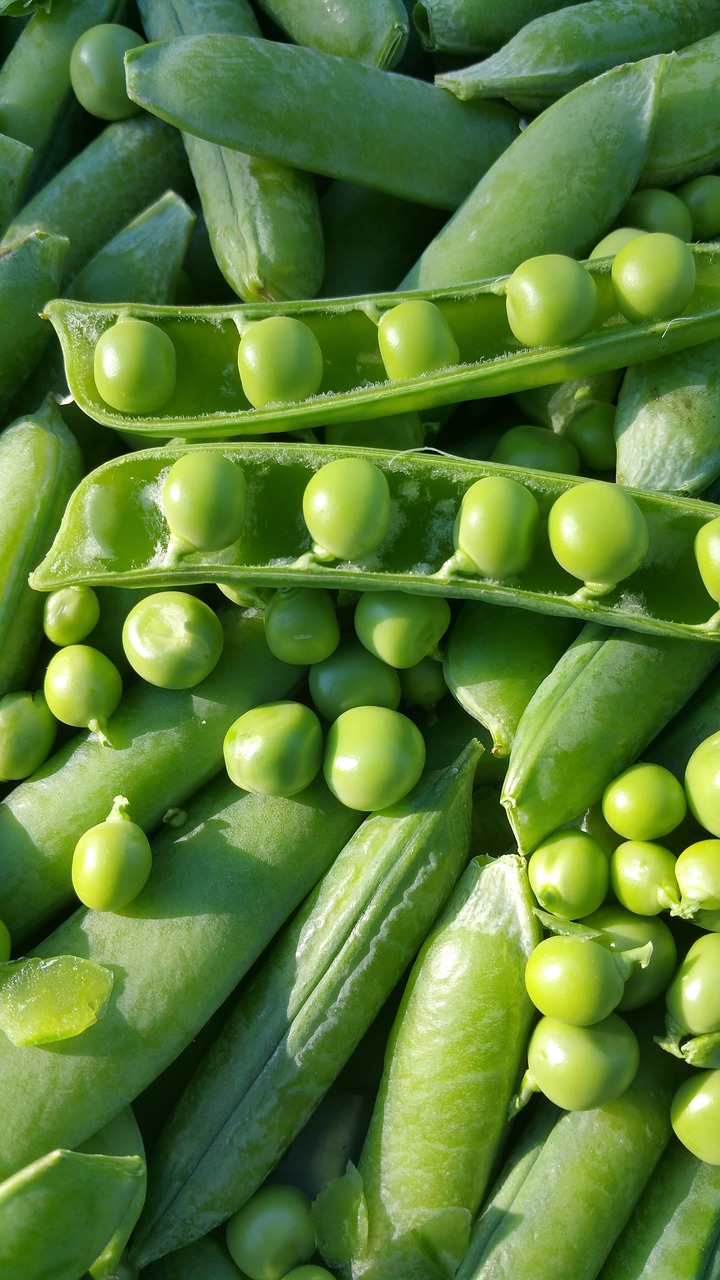
Do More Research!
Like I said before, I'm not an expert! Sure, I spent pretty much every spare moment of my time poring over forums, group discussions, blog posts, hatchery webpages, and academic studies about even the smallest things related to my ducks, but I've only been doing this for a few years. There's people that have been doing this for much longer than I have, and they know way more than I do.
Be sure to check out our post detailing what we learned with our first year brooding ducklings!
